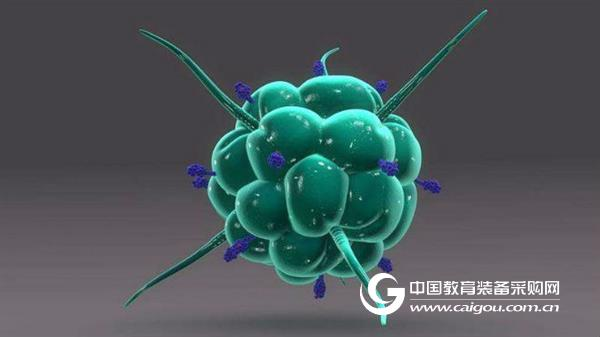Guide
In the past, we thought that immune checkpoint inhibitors stimulated them to fight cancer by "unblocking" T cells. Now, a team from the Stanford University School of Medicine has found that PD-1/PD-L1 antibodies also fight cancer in a new way: mobilize macrophages infiltrating tumor cells to destroy tumor cells.

An article published in the journal Nature, entitled "PD-1 expression by tumour-associated macrophages inhibits phagocytosis and tumour immunity", reveals that immunological checkpoint inhibitors represented by PD-1/PD-L1 antibodies can A completely different way to fight cancer.
Dr. Irving Weissman, a professor of pathology and developmental biology at Stanford University School of Medicine, led the team to discover that in addition to mobilizing T cells, these antibodies can "unblock" tumor-associated macrophages (TAMs). They "swallow" cancer.
Tumor-associated macrophages refer to macrophages that infiltrate tumor tissues and are the most abundant immune cells in the tumor microenvironment. In the early stages of tumorigenesis, such cells are responsible for identifying and eliminating tumor cells. However, with the development of tumors, macrophages will help the spread and metastasis of cancerous cells.
The researchers hope that this new discovery will improve and expand the efficiency and application of immunotherapy.
How do cancer cells "hijack" PD-1?
T cells are responsible for detecting and cleaning damaged or diseased cells, but such cells sometimes mistakenly attack healthy cells, causing autoimmune diseases such as lupus erythematosus or multiple sclerosis. PD-1 is an immune checkpoint molecule expressed on the surface of T cells. It protects the body from an overactive immune system by inhibiting T cell responses, and is called a "brake molecule."
About 10 years ago, scientists discovered the "wandering" of cancer cells, and they used immune checkpoints to cover up their "bad guys." Specifically, the PD-L1 protein expressed on the surface of the tumor binds to the PD-1 protein on the surface of the T cell, and transmits a signal of “self-human, don’t kill me†to the immune system, thereby evading the detection and attack of immune cells in order to block this. As soon as the escape signal, scientists developed antibodies that block PD-1/PD-L1 binding.
In addition to T cells, antibodies also "unblock" TAMs
Professor Weissman said: "PD-1/PD-L1 antibody is a 'star drug' for cancer immunotherapy. Although most scientists believe that this type of antibody achieves anti-cancer goals by releasing T cells, now we have found another Ways."
The team found that PD-1 receptors also inhibit the anticancer activity of tumor-associated macrophages. "The surface of this type of macrophage also expresses PD-1 receptor. When PD-1 or PD-L1 is blocked by antibodies, TAMs inhibit release, thereby restoring the ability to phagocytose and destroy cancer cells," Weissman explained.
This mechanism is also present in another antibody, the CD47 inhibitor, studied by the Weissman team. They found that CD47 inhibitors activate macrophages to "phagocytose" cancer cells. This means that CD47 antibodies are also one of the important research directions in cancer immunotherapy.
They used a model of cancer-bearing mice to find that PD-1/PD-L1 antibody enhances phagocytosis, effectively inhibits tumor spread and prolongs mouse life.
However, existing studies are not sufficient to show that tumor-associated macrophages help PD-1/PD-L1 antibodies to fight tumors. Researchers believe that this latest finding helps to develop new anti-cancer methods by mobilizing T cells or macrophages to attack cancer.
As an important component of the innate immune system, macrophages can detect different tumors in different patients. Therefore, this study means that the anti-cancer effect of the PD-1/PD-L1 antibody is more extensive and effective than previously studied.
Shanghai Chuangsai Technology has excellent performance, interleukin cytokines, fetal bovine serum, electrophoresis equipment scientific instruments, raw material drug standards, chemical reagents, cell culture consumables, Shanghai Chuangsai, mass products special promotions, welcome to inquire!
Concealer that is too light or too dense will make your makeup look unnatural. Therefore, you should choose different concealer according to your skin type to make your skin appear healthy. Paste and strip concealer have better covering effect, but the operation is more difficult; The concealer with low concealing ability can make the makeup natural because of its fresh texture. Generally, concealer is solid, but its viscosity is different. According to your own needs, you can choose to use large areas or local products.
Concealer,Private Label Concealer,Concealer Shade Finder,High Quality Concealer
Suzhou Yimeijia368 Biological Technology Co.,Ltd. , https://www.yimeijiabeauty.com